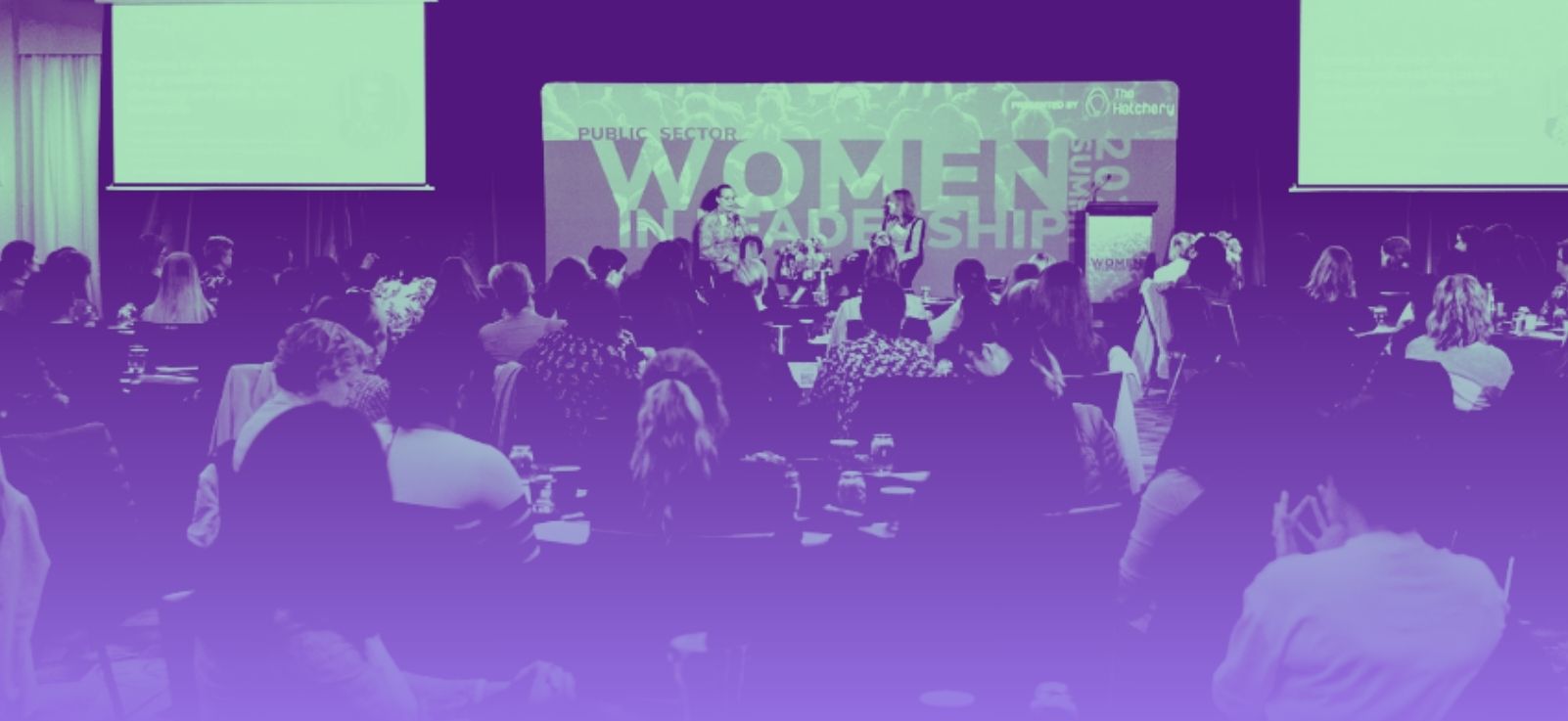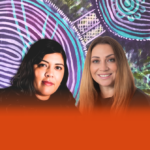Power-packed line-up to tackle the big issues at Women in Leadership Summit

We all have biases that colour our decision-making, and overcoming them is an increasingly critical part of successful leadership, according to one expert.
International development specialist and Culturally and Linguistically Diverse (CALD) advocate Anna Szabo says biases, conscious and otherwise, hold leaders and potential leaders back from achieving their potential.
“We all have biases, whether we know it or not,” she says. “What that can do is give us a tendency to help those who are like us, when leadership – good leadership – is about helping those who are not like us, as well as those who are.”
In her segment at The Hatchery’s Women in Leadership Summit, Ms Szabo will break down the importance of cultural diversity and cross-cultural capability in leadership, and how we can address our unconscious biases to break down systemic inequality.
Ms Szabo is particularly interested in how people with CALD backgrounds don’t have equal access to leadership opportunities.
She cites the recent ANU paper “Modelling Australian Public Service Careers” which highlights the inequality that precludes people from CALD backgrounds from leadership positions in the public service.
It shows those from a non-English speaking background take longer to be promoted than their colleagues from an English speaking background, despite entering the Australian Public Service (APS) with similar academic results – and that this promotion penalty gets worse at higher ranks of the public service.
Over the past two decades, 96 per cent of promotions to the senior executive service went to people with Anglo, Celtic and European names.
The problem is particularly pronounced in the APS, where one per cent of federal and state government department heads today come from non-European backgrounds, according to the Lowy Institute. The private sector is only marginally better – for ASX 200 CEOs, four per cent are from non-European backgrounds.
“We’ve made huge strides with gender equality over the last 10 years, but CALD people still aren’t able to access leadership opportunities in the same way as their non-CALD colleagues,” Ms Szabo says.
“This is a problem for several reasons, and the first is changing societal expectations around the cultural makeup of our public policy institutions and government… The public expects to see themselves reflected in the faces of the decision-makers who have the privilege of conveying our values to the rest of the world. When that’s not reflected in our leaders, we’re more likely to miss important factors in critical decisions.
“There is a well-established body of research that shows culturally diverse leadership teams produce better results, higher dividends and more innovative outcomes. This is no longer a ‘nice to have’ – it’s a `must have’ in a complex, contested, multicultural and fast-moving operating environment.”
Like most hurdles humans overcome, the first step is admitting we have a problem.
“Australia is often sold as a multicultural success story. We look at our country as one where multiculturalism has thrived when in reality, we have the same challenges with racism every other country in the world has,” Ms Szabo says.
“We need to stop seeing racism as something that divides people into two categories – those who are racist and those who are not. This kind of binary thinking is reductive and unhelpful. As a community we need to instead start thinking about how our actions, thoughts and deeds might reveal a racist attitude or perception, or demonstrate an unconscious bias we didn’t realise we had.
“This is not just a topic the people of the ‘woke generation’ like to talk about – it’s actually a critical topic in any discourse around any political, economic, social or cultural issues in Australia today. If we’re not thinking of how our own unconscious biases are represented in our leadership, our organisation or those we interact with, then we are complicit in carrying on the status quo.”
We all have biases that colour our decision-making, and overcoming them is an increasingly critical part of successful leadership, according to one expert.
International development specialist and Culturally and Linguistically Diverse (CALD) advocate Anna Szabo says biases, conscious and otherwise, hold leaders and potential leaders back from achieving their potential.
“We all have biases, whether we know it or not,” she says. “What that can do is give us a tendency to help those who are like us, when leadership – good leadership – is about helping those who are not like us, as well as those who are.”
In her segment at The Hatchery’s Women in Leadership Summit, Ms Szabo will break down the importance of cultural diversity and cross-cultural capability in leadership, and how we can address our unconscious biases to break down systemic inequality.
Ms Szabo is particularly interested in how people with CALD backgrounds don’t have equal access to leadership opportunities.
She cites the recent ANU paper “Modelling Australian Public Service Careers” which highlights the inequality that precludes people from CALD backgrounds from leadership positions in the public service.
It shows those from a non-English speaking background take longer to be promoted than their colleagues from an English speaking background, despite entering the Australian Public Service (APS) with similar academic results – and that this promotion penalty gets worse at higher ranks of the public service.
Over the past two decades, 96 per cent of promotions to the senior executive service went to people with Anglo, Celtic and European names.
The problem is particularly pronounced in the APS, where one per cent of federal and state government department heads today come from non-European backgrounds, according to the Lowy Institute. The private sector is only marginally better – for ASX 200 CEOs, four per cent are from non-European backgrounds.
“We’ve made huge strides with gender equality over the last 10 years, but CALD people still aren’t able to access leadership opportunities in the same way as their non-CALD colleagues,” Ms Szabo says.
“This is a problem for several reasons, and the first is changing societal expectations around the cultural makeup of our public policy institutions and government… The public expects to see themselves reflected in the faces of the decision-makers who have the privilege of conveying our values to the rest of the world. When that’s not reflected in our leaders, we’re more likely to miss important factors in critical decisions.
“There is a well-established body of research that shows culturally diverse leadership teams produce better results, higher dividends and more innovative outcomes. This is no longer a ‘nice to have’ – it’s a `must have’ in a complex, contested, multicultural and fast-moving operating environment.”

Like most hurdles humans overcome, the first step is admitting we have a problem.
“Australia is often sold as a multicultural success story. We look at our country as one where multiculturalism has thrived when in reality, we have the same challenges with racism every other country in the world has,” Ms Szabo says.
“We need to stop seeing racism as something that divides people into two categories – those who are racist and those who are not. This kind of binary thinking is reductive and unhelpful. As a community we need to instead start thinking about how our actions, thoughts and deeds might reveal a racist attitude or perception, or demonstrate an unconscious bias we didn’t realise we had.
“This is not just a topic the people of the ‘woke generation’ like to talk about – it’s actually a critical topic in any discourse around any political, economic, social or cultural issues in Australia today. If we’re not thinking of how our own unconscious biases are represented in our leadership, our organisation or those we interact with, then we are complicit in carrying on the status quo.”
This year’s Women in Leadership Summit will be the biggest one yet, simultaneously running in Canberra, Sydney, Melbourne and Brisbane, each with their own local speakers.
Now in its seventh year, the summit is tailor-made to inspire women to become remarkable leaders by connecting aspiring and current women in leadership with the collective wisdom of the leading women across Australia’s public sector.
Attendees will get invaluable advice from senior leaders on a broad range of important topics, including diversity and inclusion, gender equality, health and work/life balance and the reality of gender discrimination. The format includes panel discussions, case studies and individual stories of leadership, courage and authenticity.
Canberra’s summit will have a strong public and government focus, aimed at tackling issues faced by public service females at different times in their careers.
More specific examples include inequality issues including those faced by LGBTIQA+ people, health issues including menopause, endometriosis, IVF and mental health, life challenges such as divorce, separation and the “sandwich generation”, and how leaders can support team members faced with these challenges.
The Hatchery’s managing director Andrew Savage said the summit was “absolutely appropriate for male allies and those aspiring to be male allies” as well.
“We often hear from women in the public sector that they want to better understand the male perspective and how to engage male allies, so that will be tackled in this year’s summit,” he says.
Hillary Clinton will feature as the international keynote speaker, running a virtual livestream Q&A facilitated by renowned Australian journalist Leigh Sales.

The Women in Leadership Summit runs from 28 to 29 February 2024 at QT Canberra.
Article written by Dione David for Riotact




